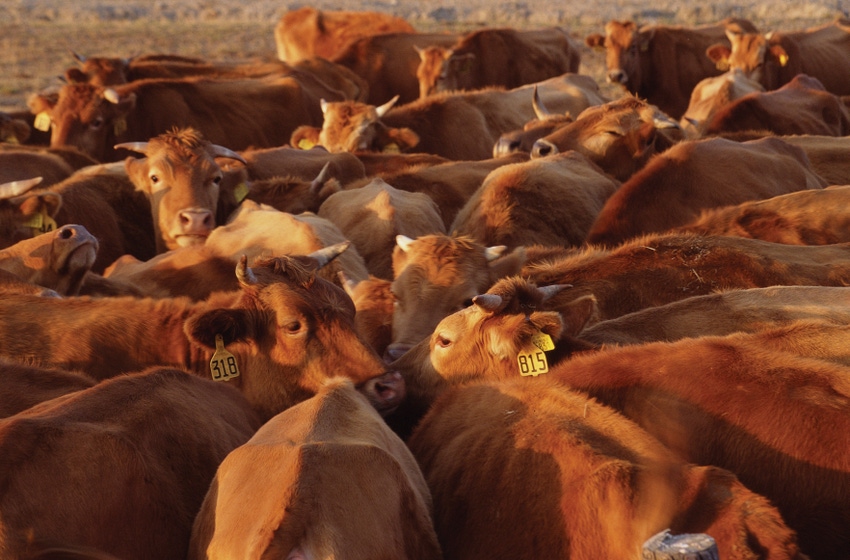New method of scoring DNA mutations may provide better genetic markers for selecting healthier and more productive cattle.
January 3, 2020

Researchers at the University of Melbourne in Australia have developed a test to score each DNA mutation in cattle, making it possible to select likely causal genetic markers based on their biological functions, according to an announcement the university posted to Futurity.org.
The study looks at cattle from different countries and breeds and aims to help farmers with selective breeding, the announcement said.
Previously, several mutations in the cattle growth hormone receptor gene (GHR) were found to increase milk production. Because the sequence of these mutations is almost identical, it is difficult to tell which is causal, the researchers explained. Now, scientists have found that one of those mutations lies within a genomic spot important for evolution in 100 vertebrae species, which helps locate the causal mutation within the GHR gene.
This and other identified informative mutations are better markers to help breed healthier and more productive cattle, the university said. This scoring method can also help find informative and/or causal DNA mutations in people and markers of human disease.
“Finding these causal mutations is critical to breeding animals and in treating patients,” lead author Ruidong Xiang of the University of Melbourne said.
Cattle provided a good test case due to their population of 1.46 billion, with millions genotyped or sequenced as well as phenotyped. The increasing amount of genomic data available makes cattle a reliable comparative model to test genome-wide association studies, the announcement said.
By looking at how the DNA mutations change molecules in cells and tissues and how these shape evolution, the study authors demonstrated a new way to score millions of DNA mutations. They call this the "Functional-And-Evolutionary Trait Heritability" score.
“Finding the ‘right’ genes helps the breeding industry improve the accuracy of genomic prediction -- a technique that predicts future phenotype using DNA information,” said senior co-author Mike Goddard, a joint appointee at the University of Melbourne and Agriculture Victoria. “This will help farmers accurately select elite animals (and), thus, accelerate the annual genetic gain.”
“Many mutations ranked top in this scoring system are important for many phenotypes of cattle from different countries. This means that they can be used to advance selective breeding,” Xiang said.
The research may also help improve the efficiency and accuracy of the global cattle breeding and improve the methods for finding important mutations in mammalian species, the university said.
The next phase of the research will be applying the methods to other animal species and using the method on larger sample sizes.
The research appears in Proceedings of the National Academy of Sciences. Additional researchers from the University of Melbourne, Agriculture Victoria, La Trobe University, the University of Queensland and Aarhus University in Denmark contributed to the work.
The researchers conducted the research with support from industry partners, including the DairyBio initiative, Agriculture Victoria, DataGene and farmer cooperative CRV.
You May Also Like

.png?width=300&auto=webp&quality=80&disable=upscale)

